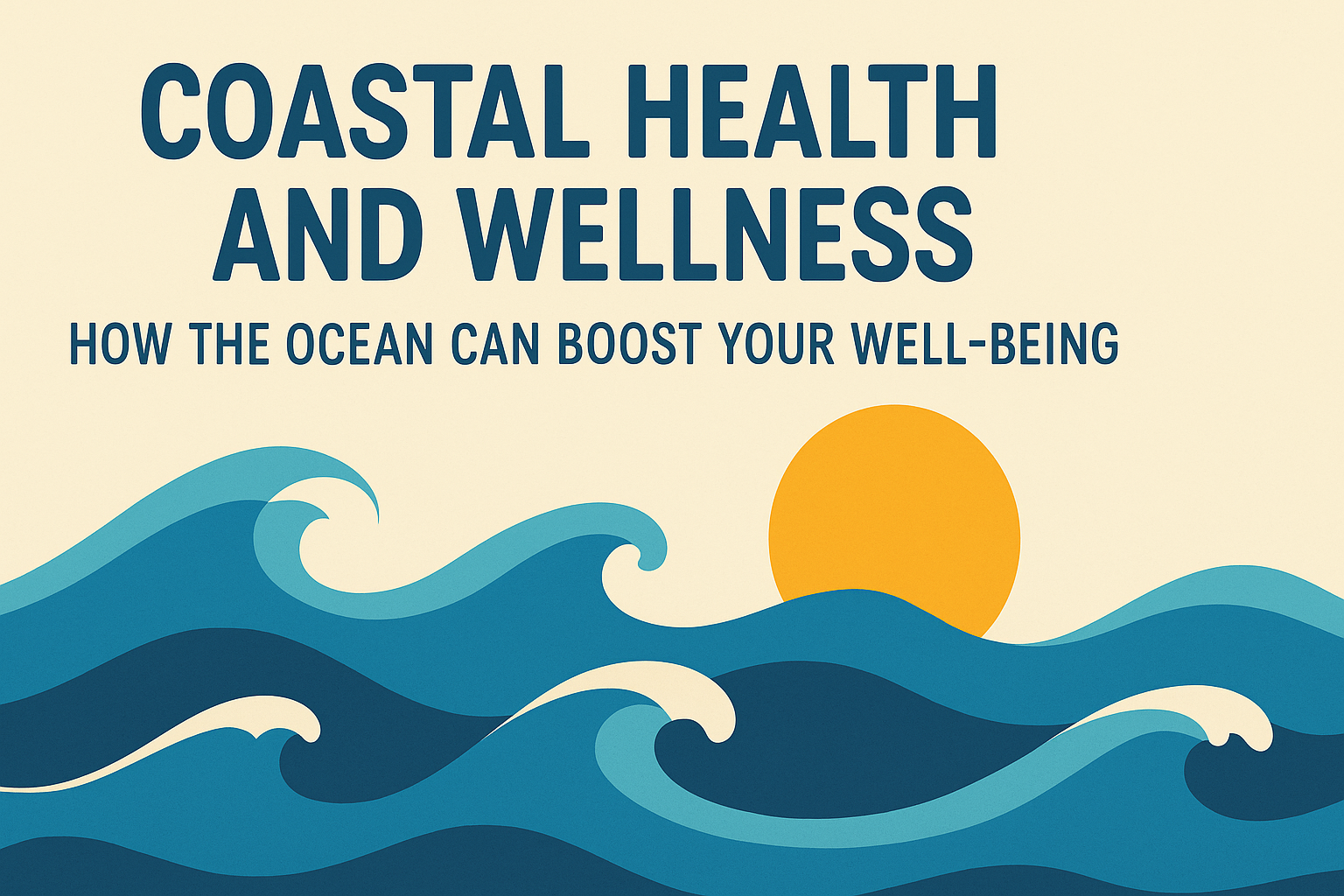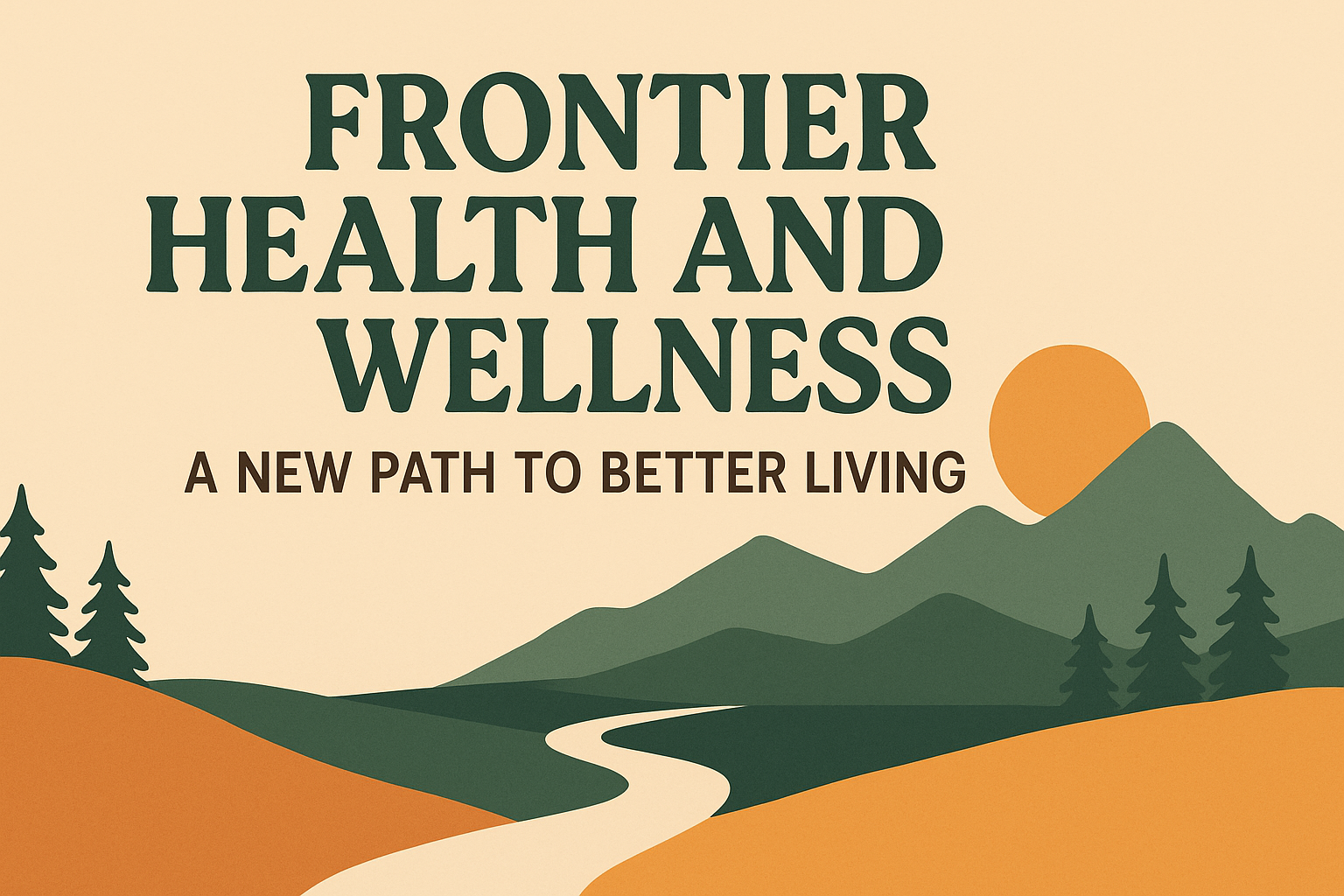Coastal Health and Wellness: How the Ocean Can Boost Your Well-Being

Living near the coast can do more than just offer beautiful sunsets. It can improve your health in real ways. Coastal health and wellness is about how being near the ocean affects your body, mind, and mood. People who live by the sea often feel calmer, move more, and eat better. This post will show you why that happens and how even those who don’t live on the coast can still benefit.
What Is Coastal Health and Wellness?
Coastal health and wellness means using the coast to improve your life. That includes physical activity, mental peace, and good food. You don’t need to live at the beach to get these benefits. Even short visits or small lifestyle changes can help. Think of it as nature’s way of keeping you healthy.
Better Physical Health Through Coastal Living
People who live near the coast tend to be more active. They walk more, swim more, and spend time outdoors. The beach is a natural gym. Walking on sand works muscles more than walking on pavement. Swimming is low-impact and great for joints. Being near water also makes people want to be outside more.
Sunlight at the coast helps the body make vitamin D. That supports strong bones and a healthy immune system. Sea air is rich in salt and negative ions. These can help clear lungs and reduce allergy symptoms. All of this adds up to better physical health.
Read More » Coles Jobs: Your Guide to Working at One of Australia’s Biggest Employers
Mental Health Improves Near the Coast
The sound of waves, wide open views, and fresh air all lower stress. Studies show that people who live near the coast have fewer signs of anxiety and depression. The color blue has a calming effect. That’s why looking at the ocean can make you feel peaceful.
Spending time at the beach slows your heart rate. It lowers cortisol, the stress hormone. Many people find it easier to meditate or relax when they’re near water. Some therapists use “blue therapy” to treat stress and trauma. Nature helps reset the mind.

Emotional Benefits of Coastal Life
Emotionally, the coast gives people space to think and heal. Watching the tide or walking barefoot on the sand grounds you in the moment. This kind of mindfulness helps with emotional balance. It also builds resilience over time.
Being near the ocean encourages social interaction. Beaches bring people together. Families play, friends gather, and communities bond. That sense of belonging improves emotional well-being. For some, the ocean becomes a place of reflection and healing.
Eating for Coastal Wellness
Coastal diets are full of fresh seafood. Fish like salmon, tuna, and sardines are high in omega-3s. These fats support brain health and reduce inflammation. Shellfish like shrimp and oysters provide zinc and iron. Local produce grows well in coastal areas. Farmers’ markets sell fresh fruits and vegetables. Eating locally cuts down on processed foods. It also supports sustainable eating habits. Traditional coastal meals are balanced and rich in nutrients.
Seaweed and sea greens add flavor and minerals. They are common in Asian and Nordic diets. These foods boost iodine and magnesium intake. Hydration also improves in humid coastal climates. People drink more water and stay hydrated naturally.
Unique Wellness Practices Along the Coast
Many cultures have developed wellness routines around the sea. Thalassotherapy uses seawater, algae, and salt for skin and muscle care. Spas offer seaweed wraps and salt baths. These treatments improve circulation and skin tone.
Cold water dips are popular in places like Iceland and Ireland. Cold immersion boosts blood flow and energy. It may also improve mood and focus. Surf therapy helps veterans and trauma survivors. Riding waves builds confidence and emotional strength.
Beach yoga and outdoor fitness classes are growing trends. Sand challenges balance and strengthens core muscles. Open-air workouts feel more relaxing than indoor gyms. Coastal retreats blend spa services with nature experiences. They offer rest and renewal for the whole person.
How to Bring Coastal Wellness Into Daily Life
You don’t need to live at the beach to enjoy its benefits. Small changes can bring the coast into your daily routine. Use ocean sounds while working or sleeping. Add blues and whites to your home décor. Keep indoor plants to mimic coastal greenery.
Find local parks, lakes, or rivers. Walk barefoot in grass or swim in clean water. Try paddleboarding or kayaking if possible. Even a fountain or aquarium can give a sense of calm. These small steps connect you to water’s soothing effects. Eat more fish and sea vegetables. Try recipes from coastal regions like Japan, Greece, or Mexico. Cook with seaweed, lemon, herbs, and olive oil. Eat seasonal and fresh foods whenever you can.
Plan trips to the coast. Even one weekend a month can reset your mood and energy. If you can’t travel, bring the coast to you. Watch videos of the ocean, read books set on islands, or cook seafood at home.
Final Thoughts: Make the Coast Part of Your Life
Coastal health and wellness is not just for people who live by the sea. It’s a lifestyle anyone can adopt. From better physical health to improved mental clarity, the benefits are real and lasting. Whether you take daily walks, eat more seafood, or simply listen to ocean sounds, you can feel healthier and more relaxed.
Nature has a powerful effect on our bodies and minds. The coast offers a unique form of healing that modern life often lacks. By bringing elements of coastal living into your everyday routine, you can live a more balanced, joyful life—no matter where you live.
Read More » T-Mobile Insurance: Clear Facts, No Fluff
Frequently Asked Questions (FAQ)
Q1: What is coastal health and wellness?
A: It’s a lifestyle that uses the natural benefits of the ocean and coastal environments to improve health. It covers physical activity, mental health, and diet.
Q2: Do I have to live near the ocean to benefit?
A: No. You can enjoy coastal wellness by visiting the beach, using ocean sounds, or eating more seafood. Even small changes help.
Q3: Does being near water really reduce stress?
A: Yes. Studies show that water environments lower stress hormones and improve mood. The sound of waves and open views have a calming effect.
Q4: What kinds of exercises work best for coastal wellness?
A: Swimming, walking on sand, paddleboarding, and beach yoga are great choices. Any activity that gets you moving near water counts.
Q5: Are there specific foods linked to coastal wellness?
A: Yes. Fish, shellfish, seaweed, and fresh produce are staples in coastal diets. These foods support heart health, brain function, and energy.
Q6: What is thalassotherapy?
A: It’s a type of therapy that uses seawater, salt, and marine plants for skin and muscle treatments. It’s common in coastal spas.
Q7: Can kids benefit from coastal wellness?
A: Yes. Playing at the beach or swimming in the ocean helps children develop motor skills, creativity, and emotional balance.
Q8: Is cold water therapy safe?
A: For most people, yes. Short dips in cold water can boost circulation and mood. Always start slowly and listen to your body.
Q9: What should I know before trying coastal wellness?
A: Stay safe in the sun. Drink enough water. Be aware of tides and weather if you swim or hike. Don’t push yourself too hard.
Q10: Where can I find coastal wellness programs?
A: Many coastal resorts offer wellness packages. Places like Hawaii, Thailand, Costa Rica, and Greece have popular retreats. Local spas may also offer thalassotherapy.
